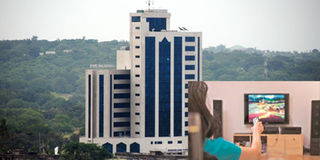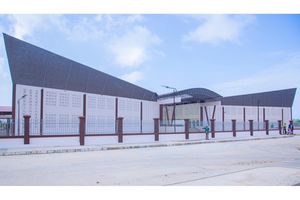TCRA now sets eyes on pay television providers

Dar es Salaam. Tanzania Communication Regulatory Authority (TCRA) is to roll out yet another public campaign, this time targeting mostly pay television services.
The agency is mulling the introduction of some sort of a ‘super decoder’ or Set Top Box (STB), that it says will allow television subscribers to interchange smart cards from different service providers using the same decoder.
The introduction of the Conditional Access Module (CAM) decoder will be the first in the country and according to TCRA, it was meant to save consumers from the inconvenience of keeping several decoders.
Currently, both Free To Air (FTA) and Direct to Home (DTH) operators have own decoders and issue smart cards to respective subscribers. But now TCRA wants to change that and have in the market a Common Interface (CI) decoder for the envisaged pay television interoperability.
The new decoder will thus allow consumers to switch-over from one service provider to another without changing the receiver set, but would only require a smart card to view the content of any particular service providers.
According to proposals, the CI slot will be mandatory on the STBs. The TCRA plans which were first muted in September 2019 are expected to pick this year. Documents seen by The Citizen show that the regulator may be working with a deadline of June 2020 for the introduction of the new system.
But TCRA director general James Kilaba this week suggested the timelines could run for the entire year. “I cannot give the exact deadline but before this year ends it will have been implemented. This is a process we must engage stakeholders and agree to accelerate it without destroying the market,” he told The Citizen in an interview.
He said they aimed to increase flexibility for consumers because the Tanzania market currently had a range of different makes of STBs, customised for only one service provider, leaving consumers with no choice other than acquiring multiple STBs to view the full range of Digital Terrestrial Platform (DTT) services.
“We are at an advanced stage of the process and this move will reduce those kind of complaints from people who want the Free To Air (FTA) channels by having one operator to facilitate it,” said Mr Kilaba. The TCRA boss said the migration will be market driven and will not have much impact on consumers.
The latest TCRA campaign will bring yet another switch for Tanzania’s telecommunication industry after the country witnessed at least four transitions in less than a decade.
In 2013, Tanzania witnessed a dramatic change in the broadcast industry when the analog systems were officially discontinued in favour of digital. At that point, television stations had to re-invest millions of shillings to fit in the new digital platform that has revolutionalised the advertising space.
Later in 2016/17 came the switching off of fake mobile phones, which saw thousands of handsets discontinued. The authority said it wanted to ensure market standards and effective service delivery were adhered to.
In 2018, the decoder subscribers in the country such as DSTV, Azam Media Limited and Simbanet (Zuku) were directed by TCRA to remove FTA local channels. Recently, the country witnessed the switching off of SIM cards not biometrically registered in an exercise championed by TCRA.
The government-as well as telecommunication companies, commercial banks, utility bodies, mobile money agencies and individuals felt the pinch as about 20.4 million mobile subscribers were earmarked for the deregistration.
TCRA licensing unit chief Andrew Kisaka said the planned change is not very similar to the analog to digital one as it involves only different receptions unlike the earlier transition involving only broadcasting machines.
Mr Kisaka said the decision to go for one ‘super decoder’ is as a result of long-standing complaints of people having multiple units in homes which requires them to change from one facility to another in search of different programmes.
He said through CAM technology, the person will have the same tool with electronic cards of different providers that are put up to date.
“So the service providers will now be selling CAMs,” he said.




